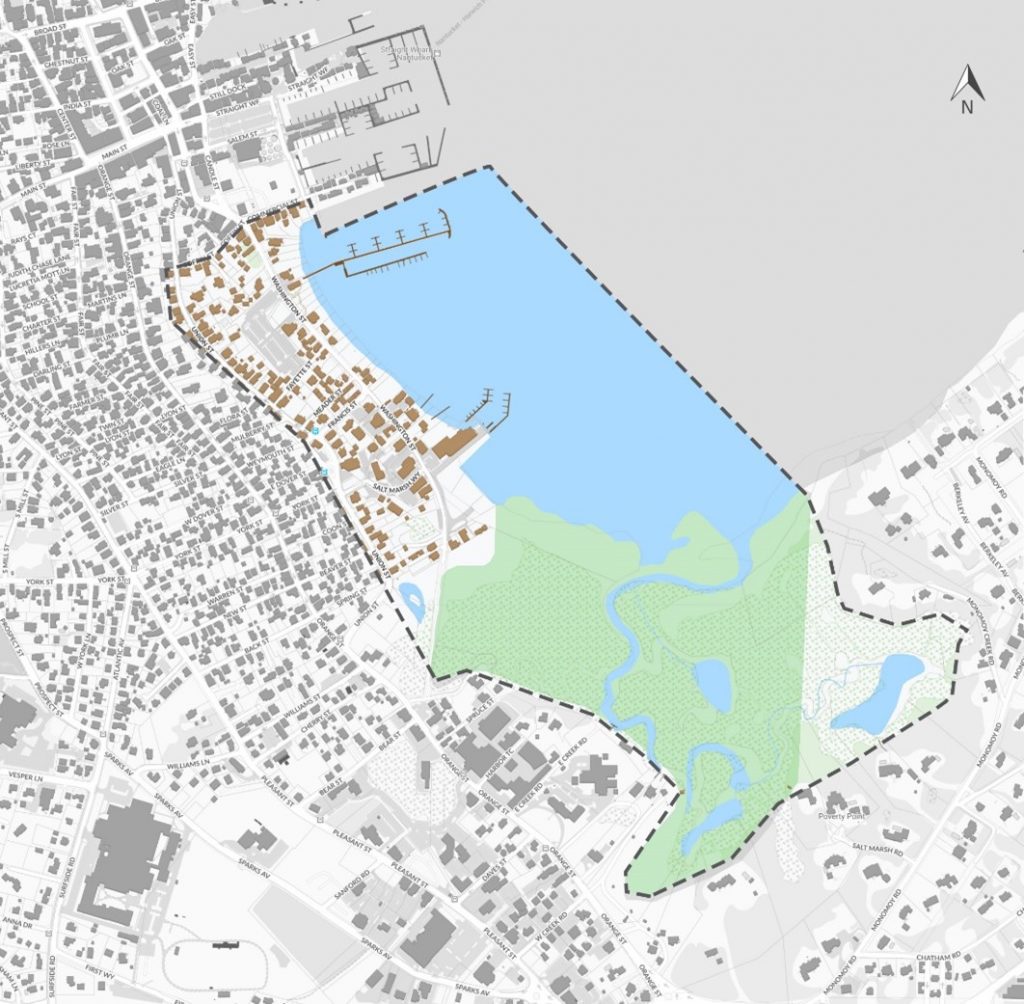This year was the 49th consecutive year of the Preservation Institute Nantucket (PIN). In recent years, PIN has turned to conversations about resilience within a historical context. Utilizing the recently completed Resilient Nantucket: Flooding Adaptation and Building Elevation Design Guidelines and the Secretary of the Interior’s Standards for Rehabilitation & Guidelines for Flood Adaptation for Rehabilitation Historic Buildings, the students looked at not only the built environment but also the natural environment, policy, sustainability, and pubic engagement.
Building off work completed during the 2020 PIN session, the students this year looked at three focus areas: Creeks Expansion Area, Harbor Front and the Creeks, and Union Street. While applying their research to the focus areas, they looked at adaptations, alternative landscaping, economics, law and policy, recreation, art, and outreach programming. All of which are pieces of a holistic treatment for a transformative vision and action for the Washington Street and Creeks study area.

